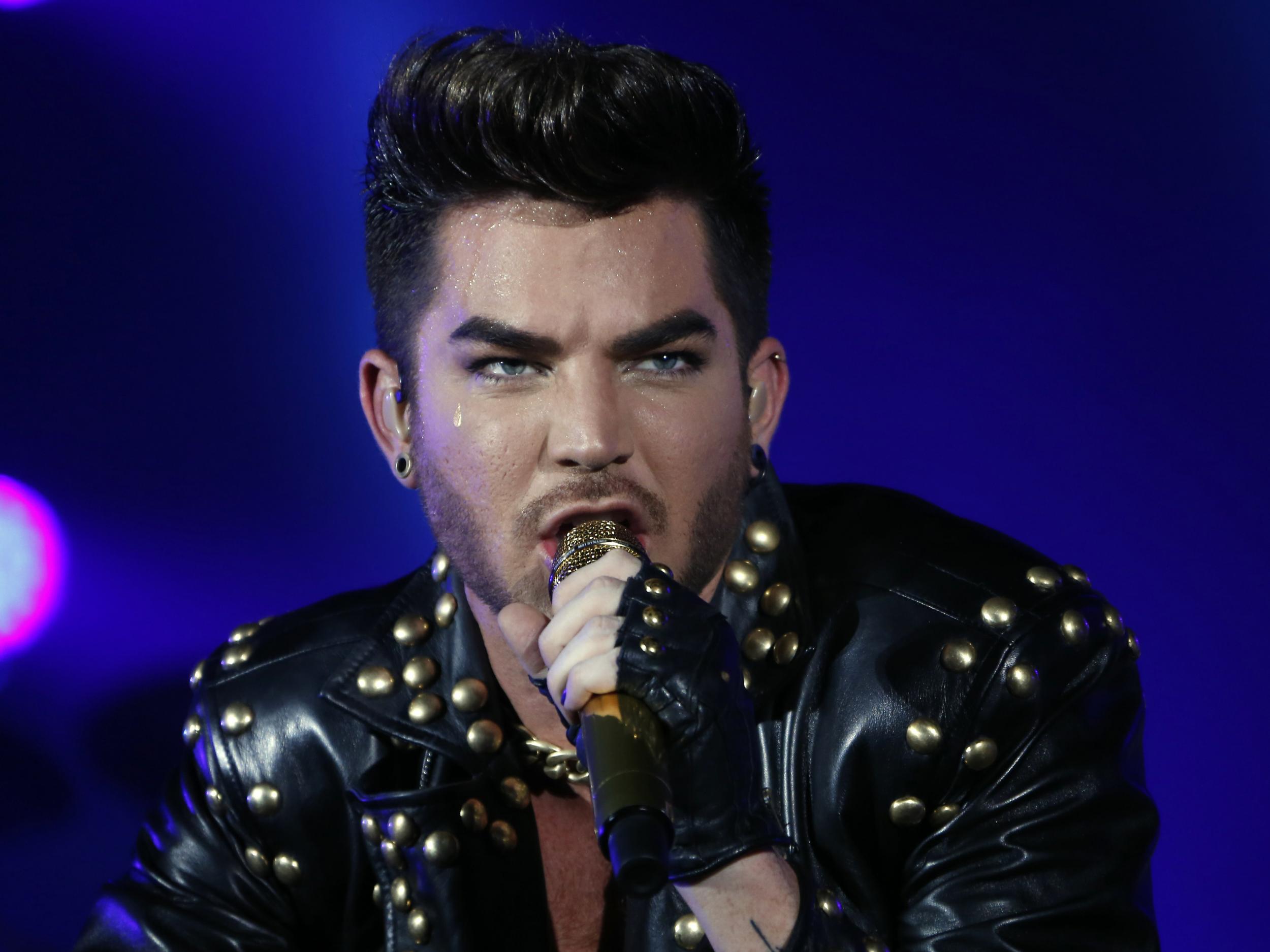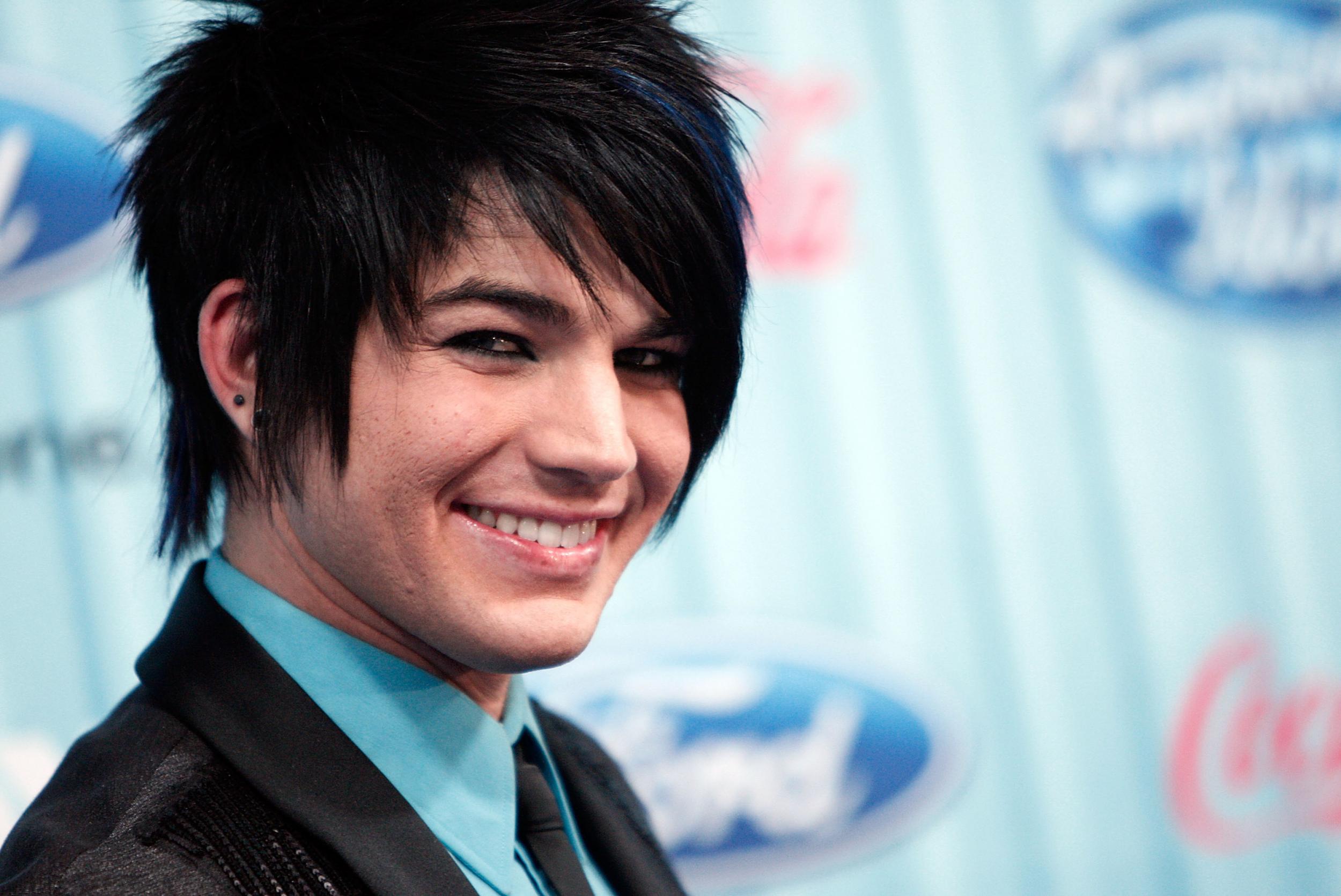Adam Lambert: Another Lonely Night singer talks Twitter, trolls and success in the digital age

Unlike many American Idol winners who rapidly fall into obscurity, Adam Lambert departed from the eighth series as a runner-up and went on to become one of the most successful to grace the programme, with his second album, Trespassing, premiering at number one in the US Billboard 200 chart.
Three top five albums later and a long-standing collaboration with Queen under his belt, Lambert shows no signs of slowing down.
His single “Another Lonely Night” was released earlier this month and a world tour has been announced for 2016. The Independent had a quick chat with him about Twitter, the digital age, sexuality, and having a global fan base. Here are some of the highlights:
On touring with Queen
After months on the road, Lambert re-joined the band as they made their return to Brazil’s Rock in Rio festival for the first time in 30 years in September.
“Queen are incredible. They are really, really sweet to me and I think everybody involved is just really thrilled that it has been so well received.
“I get a bit spoiled when I’m on the road with them because it’s way beyond the way I usually do things - it’s much more luxurious. They fly private jets, they have an amazing chef that’s on the road, and then I go into my solo stuff, and I’m like ohhhh right, right.”

On navigating the digital age
“Ghost Town” has now been watched on YouTube over 46 million times, a testament to its global success. But social media is a double-edged sword for musicians, who can grow their presence by having more platforms while facing increased competition from the growing number of artists emerging online.
“It’s certainly quite a game. There is a lot going into being an artist right now. I’m lucky, I have a great team of people who help me wrap my head around all of it, and it’s exciting! Social media is an amazing way of getting right to the people, it’s incredible.”
On the advantages and perils of Twitter
Lambert’s ascent to fame happened just as Twitter’s popularity exploded, creating a “whole new ball game” for him as a new artist. But he understands the power of social media and has embraced it, even holding occasional “Twitter parties” to chat with his fans.
“I like to see what people are saying about things and how they are weighing in on decisions and performances. It is kind of like a research tool that way.”
This new way of seeing also means being exposed to both the negative and positive comments from the public, something that has helped him build a thicker skin. “You have to not take it personally. I always say somebody that comes online in order to write some trashy thing about somebody usually probably doesn’t have that much going in on their life if that’s what they spend their time doing. That’s what makes me feel better about it, I’m like ‘who the hell is this person?”.
On comment sections
“You can accidentally stumble into these like dark pits of despair and comment sections of the internet where people start fighting each other. It’s just too insane."
And on how easily tweets can be misconstrued
“It’s really difficult these days to have a conversation or a debate or any sort of constructive conversation without people getting offended, or reading into things literally it’s difficult. I think the information age and social media has turned into this amazing place for us to connect and communicate, but it also creates a lot of issues. People pick things apart and it’s a lot easier to get offended by text on a screen than it is by an actual person because you miss the nuance and the intention behind things and the emotion behind things. People take things so literally right now.”
On Russia
Lambert was recently in the headlines after a homophobic petition from “concerned citizens” demanding he be dropped from a popular New Years Eve event in Singapore was signed by more than 20,000 people. The petition criticised his “promotion of LGBT rights” and “sexualised” performances, but a counter-petition from his legion of fans in the island country soon garnered more signatures than the first.
Another country with repressive attitudes towards LGBT rights that Lambert has made an impact is Russia, where anti-gay laws remain in place banning the propagation of “homosexual propaganda” among children. “Ghost Town” reportedly climbed up Russian charts and he continues to have a strong fan base in a country with repressive policies on homosexuality.
“I’ve done shows in Russia and I have the most amazing Russian fans and they are really wonderful, and that’s the scary thing about a country where there are some legal and political issues against LGBT issues. It doesn’t necessarily mean that the country itself is entirely anti-gay. There’s a lot of amazing people that are Russian, amazing fans, amazing artists."
On his image
“My styling is similar to where I am headed with my music; as I’ve evolved I’m in this place where I’m realising the value in less is more. A little bit of restraint actually can be really beautiful. My whole mission as an entertainer is to communicate with people and to share an experience and sometimes you pull more people in with the less is more approach.”
On coming out
Despite living as an openly gay man in Los Angeles for years before entering American Idol, Lambert’s own ‘coming out’ took place in 2009 during an interview with Rolling Stone magazine, well after the competition drew to a close. He wanted to avoid the distraction the inevitable media circus over his sexuality would create by coming out during the competition.
“I think what is great is that it’s going to become a non-issue, and it should be in my mind. To me, it’s not a big deal. It’s just like, OK, this my sexuality, and I’m cool with it, and this is who I am and I accept myself and I’m much more than that. I think that’s the exciting thing about where we are heading, where in time to come it’s not going to be as much of an issue. And that’s being helped along by people being open and upfront about it, and challenging the stereotypes too.

“I like that we’re sort of in a time where people are like, ‘look: I don’t want to be boxed in by a label'. It’s very limiting to choose A or B as what or who you are - I don’t think it works that way. I think the more we live in the in between, the happier people are gonna be.”
He has less time for Miley Cyrus’s identification as pansexual - “whatever it is” - but is happy the conversation about sexuality is progressing and hopeful that eventually coming out as gay won’t be a news story.
Ellen Page recently talked about feeling morally obliged to use her platform to improve gay visibility, something she said factored into her decision to come out so publicly. Lambert was the first openly gay singer to reach number one with an album in the US Billboard chart, making his own journey an important LGBT moment.
“I think when everything first happened in the beginning I didn’t realise that that was going to be a big part of my trajectory. I didn’t know that that was going to be something that I was going to be representing so when it all first started, I was little but like, wait, what? But then the more I started realising that it was bigger than me in that way, that I could hopefully give a young person some courage – which is exciting!”
The Original High is on sale now
Join our commenting forum
Join thought-provoking conversations, follow other Independent readers and see their replies
Comments
Bookmark popover
Removed from bookmarks